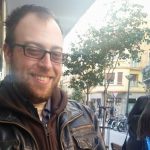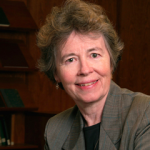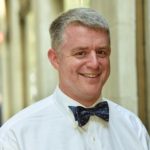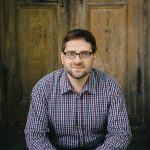 Location: Babbdige Library 4th floor room 4/209 meeting
Location: Babbdige Library 4th floor room 4/209 meeting
Time: 4:00 - 5:30pm
Date: See below for the current schedule
The Public Discourse Project seminar series is organized by Casey Johnson.
 Jordan LaBouff, Psychology - University of Maine
Jordan LaBouff, Psychology - University of Maine
Date: 1/24
Title: Humility and Helpfulness
Abstract: Dispositionally humble persons (i.e., people with characteristically low self-focus and a comfortably accurate perception of one’s strengths and limitations) may be more likely to sacrifice some of their limited resources to help others in need. In several experimental studies we find that dispositional humility predicts willingness to help someone in need – particularly in situations where social pressure to help is low. We will investigate several possible mechanisms by which humility may promote helpfulness, and explore mechanisms for promoting the development of humility and intellectual humility (e.g., education, perspective-taking exercises).
Jordan LaBouff is an assistant professor of psychology at the University of Maine, having done his PhD at Baylor University. His research investigates beliefs, and the ways in which people hold those beliefs, interact with personal virtues and social situations to influence attitudes (e.g., prejudice, impression formation) and behaviors (e.g., helping those in need, discrimination, and public behaviors).
 Catharine Elgin, Philosophy - Harvard
Catharine Elgin, Philosophy - Harvard
Date: 2/14
Title: Deweyan Democratic Deliberation
Abstract: According to Dewey, democracy is not just a form of government: it is a way of life-- a way of interacting with one another to promote our common ends and resolve our differences. Democracy thus extends beyond the political arena into all areas where we reason and act together. The mode of deliberation proper to Deweyan democracy is non-adversarial. We should see those who disagree with us not as opponents to be bested in argument, but as resources whose diverging perspectives extend our epistemic range. To engage in democratic deliberation requires a variety virtues that are at once moral and epistemic.
Catherine Elgin is a professor of the philosophy of education at the Harvard Graduate School of Education. She is an epistemologist with an interest in aesthetics and the philosophy of science. Recent work considers the question of what makes something cognitively valuable. Elgin has argued that the pursuit of understanding, rather than the pursuit of knowledge, should be the focus of epistemology's concerns. Her recent work explores how similar problems arise in diverse branches of philosophy such as aesthetics, philosophy of language, and philosophy of science.
 Maura Priest, H&C Residential Fellow
Maura Priest, H&C Residential Fellow
Date: 2/28
Title: Epistemic Greed
Abstract: My paper argues that epistemologists and ethicists have overlooked the importance of a dangerous vice (epistemic greed). I explain what this vice is and why it is a problem. In so doing my paper sheds light on the following questions: Is the behavior of epistemic elites, (a) really much different from billionaires discussing expensive wines on a million dollar yacht, and (b) do epistemic elites have the same sort of (imperfect) obligation to share in their epistemic wealth as the rich have to share in their economic wealth?
Maura Priest is a residential research fellow with the Humanities Institute’s Humility and Conviction in Public Life Project. She received her PhD in Philosophy from the University of California, Irvine. Her dissertation, "Intellectual Elites: The Good, the Bad, & the Ugly", explored ethical and political issues related to "intellectual elites". Maura's other research interests include bioethics and tensions between liberty and societal well-being.
 Robert Ingram, Historian - Ohio State
Robert Ingram, Historian - Ohio State
Date: 3/28
Title: Reformation Without End: Religion, Politics and the Past, Then and Now.
Robert G. Ingram is an associate professor in the Department of History. He specializes in early modern British religious, political, and intellectual history. He is currently completing Reformation Without End: Religion, Politics, and the Past in Post-Revolutionary England, which explores the relationship between theology, natural philosophy ,and history, c. 1714–60. His next book-length project is ‘Popish Cut-throats against us’: England, Ireland and the Burden of History in the Eighteenth Century.
 Ufuk Topkara, H&C Residential Fellow
Ufuk Topkara, H&C Residential Fellow
Date: 4/11
Title: Wounded certainty: Is God dead or can we break through the barriers between theology and philosophy in Islam?
Abstract: Modern times have witnessed a severing of the linkages between scientific knowledge and Islamic theology, not least of all in the lived public sphere. A misperception or rather misconception of this severing as a “natural” divorce has been further promulgated.
This presentation will instead elaborate how a religious tradition can learn and grow through the challenges posed by philosophical reasoning, compelled to search for meaning of, and humility within, the human experience. By elucidating not only similarities but the actual integration of key philosophical ideas into the “mainstream” Islamic, one can encourage a rethinking of the widespread assumption that these traditions should be in conflict. At the end, these inquiries can introduce a new paradigm to Islamic-Philosophical Theology debates, in which the human subject—his/her shortcomings, hopes and anxieties—takes center stage.
Ufuk Topkara is a residential research fellow with the Humanities Institute’s Humility and Conviction in Public Life Project. He received a master’s degree in history from the Humboldt University, Berlin and is completing his doctoral dissertation with the Graduate School of Islamic Theology in Germany. Ufuk's research centers on the convergence of reason and revelation. I bring Islamic Theology into discourse with Modern Philosophy.